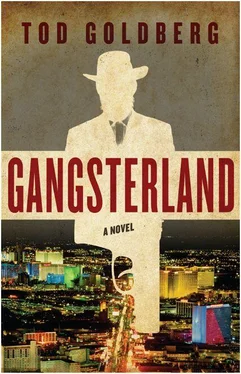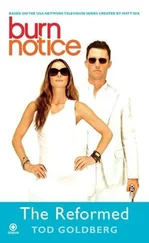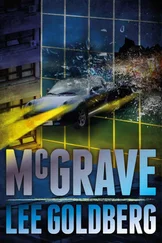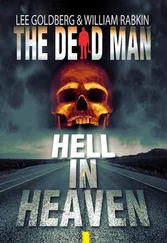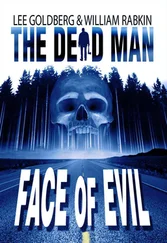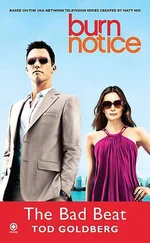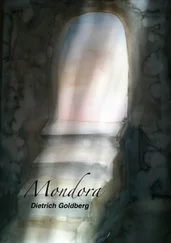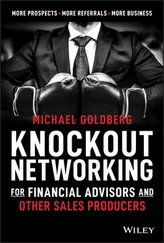Bennie handed the driver a roll of bills. “Give them a hundred each,” he told him. “Walk them over, then go pick up some pasta over at the Venetian and bring it back in, say, ninety minutes. Keep whatever’s left.”
“What was that?” David asked when the driver walked away after the meandering men.
“Those are your mourners,” Bennie said. “Bring them in from Sun City.”
“You’re not worried about that?”
“You know what it would take to get a warrant for a wire on a funeral home? A cemetery? Much less a temple? Besides, I have no business interest in this place. I’m just a concerned member of the temple, happy to lend my checkbook to worthy causes.”
The front door of the funeral home opened, and a Mexican guy in a dark gray suit stepped out. David had seen him on a few occasions in the last couple weeks, usually walking back and forth to the temple with paperwork for the business office. Whenever they made eye contact, the Mexican would drop his eyes, like he was afraid he’d catch on fire just from looking at him. “Mr. Savone,” he said, “everything’s ready if Rabbi Cohen would like to begin.” He handed Bennie two manila folders.
“Thanks, Ruben,” Bennie said. “Give us five minutes.”
“Of course,” he said, and he disappeared back inside.
“That’s Ruben,” Bennie said. “You haven’t met?”
“No,” David said.
“Good,” Bennie said. “He was my first project. Plucked him out of the pound and sent him out to Arizona to get a degree in mortuary science. He’s been here for five years.”
“What does he know?” David asked.
“Just enough,” Bennie said. “He’s solid. He does his job, gives everybody that comes through the respect and dignity they deserve, unless otherwise directed.”
“What’s his take?”
“Salary and benefits,” Bennie said. “And as far as he knows, you are what you are, and Rabbi Kales is what he is, so don’t start thinking about how he’s just another person you’ll eventually have to kill.”
It didn’t matter to David what Ruben was paid. He just wanted to know how Bennie was keeping him quiet and what David would need to do if he wanted to keep him quiet, too, if this shit with the body tissue came to fruition. Though, the more he thought about it, the more it seemed prudent to clue Bennie in, give him a cut of the action versus being forced to cut him in at some later date.
Bennie gave David the folders. “This is who you’re burying today,” he said.
David opened the first folder and read for a moment. It said that the person was named Lionel Berkowitz, that he was sixty and that the family requested a private service and simple headstone noting his life and death. A simple recitation of the Kaddish and a few remarks would be sufficient. A full sermon was typed out for him to recite, the Hebrew prayers rendered phonetically, just in case. “Why even bother with this?” David asked.
“That’s what the family wanted,” Bennie said. “We do what the families tell us.”
It was a curious thing to say, more mysterious than Bennie was prone to be, so David opened the second file and saw that it was for a woman named Rhoda Kochman, age seventy-three, born Rhoda Heaton in Saint Louis to Lonnie and Edith Heaton, preceded in death by her beloved husband Raymond Kochman, a founding member of Temple Beth Israel, survived by. .
“What is this?” David said.
“Your four o’clock,” Bennie said.
“Someone hit a seventy-three-year-old lady?”
“I don’t know how she died,” Bennie said. “Rachel probably does. They were on a bunch of planning committees for the book drive. Lady was at my house more than I was.”
It dawned on David then that he wouldn’t just be presiding over the funerals of the war dead, that he might not know one body to the next who was a natural death versus a murder. Probably better all the way around, David realized, and certainly a smart decision by Bennie. But it got him wondering about something. “Rabbi Gottlieb,” David said, “he do both?”
“A few times. But it wouldn’t be prudent to speak poorly of the dead,” Bennie said. “Rabbi Kales wouldn’t approve.” Bennie checked his watch again. “I need to get moving, and you need to get to throwing dirt.”
“If someone comes from Chicago,” David said, “I want to see them first.”
“Closed casket,” Bennie said. “No can do.”
“I wasn’t asking permission,” David said.
Bennie stared at David without speaking for ten, fifteen, thirty seconds. “Fine,” he said, eventually. He paused again. Another fifteen unblinking seconds. “But that means you see every body that comes through. You prepared to do that?”
“Nothing I haven’t seen before.”
“You see a dead kid before? You ever see that? Like a toddler? A newborn? You ever see a stillborn ?”
“Know that the reward unto the righteous is not of this world,” David said.
Bennie took a deep breath, then another. “You better go tell Ruben you want to see the bodies. Tell him you want to do some sort of religious shit to them. He won’t know any better.”
Bennie started to walk away, then turned around. He already had his phone out. “You really think I should give them up?”
“They know anything important?” David asked.
“They’re just muscle,” Bennie said.
“This guy they paralyzed, he a local?”
“A dentist from Omaha,” Bennie said. “In for some implant convention at the MGM. Wife, couple kids.”
“Give them up,” David said.
“My insurance is going to go through the roof. Would have been easier if they’d killed him.” Bennie looked out toward the Strip. You couldn’t see any of the casinos from this vantage point, couldn’t see anything other than houses and palm trees and blue sky. “You know what Bugsy Siegel said about this place? It turns women into men, and men into idiots. If he saw this place today? He’d think he walked into an insane asylum.”
“Maybe give that newspaper guy a call,” David said.
“Curran?”
“Beat him to the punch,” David said. “Give him a quote. Tell him you’re ashamed of what happened and that you’re going to see that this guy gets the best treatment available. All that.”
“And then, what? Go in and smother him?”
“Maybe do the right thing,” David said, “and pay his bills.”
Bennie pinched his mouth, contemplated for a few seconds. “Happy Hanukkah, Rabbi,” he said.
“You, too,” David said.

Dead bodies didn’t bother Rabbi David Cohen. He’d seen plenty of them over the years. That’s what David believed to be true, anyway, as he followed Ruben into the mortuary to look at the bodies of Lionel Berkowitz and Rhoda Kochman.
David and Ruben walked through the funeral home — the portion that actually looked like a home, in this case someone’s grandmother’s house, replete with couches covered in velvet, thick curtains, ornate coffee tables, pastoral art, and, inexplicably, plates of butter cookies everywhere, which is maybe why it was called Kales Mortuary & Home of Peace, since it was hard to imagine feeling anything but drowsy and restful in that joint. And then they were outside, back where David killed Slim Joe, the mortuary only a few feet away and closing fast.
“You ever see a dead body before?” Ruben asked.
“Yes, of course,” David said.
“Someone who’s been in an accident?”
“Yes.”
“Not like a drowning or an OD,” Ruben said. They were at the door now, which had a sign that said AUTHORIZED PERSONNEL ONLY, and Ruben was visibly nervous.
“I get it,” David said.
Читать дальше
